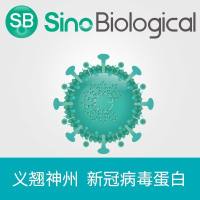Extending the Scope of Site-Specific Cysteine Bioconjugation by Appending a Prelabeled Cysteine Tag to Proteins Using Protein Trans-Splicing
互联网
互联网
相关产品推荐

Recombinant-Mouse-Mitoferrin-2Slc25a28Mitoferrin-2 Alternative name(s): Mitochondrial RNA-splicing protein 3/4 homolog; MRS3/4 Mitochondrial iron transporter 2 Solute carrier family 25 member 28
¥12012

极速多角度3D光片荧光显微镜-QLS-scope
询价

Coronavirus Nucleocapsid重组蛋白|Recombinant SARS-CoV-2 Nucleocapsid-AVI&His recombinant Protein,Biotinylated
¥4520

重组人PSMA/FOLH1蛋白 (Site-Specific AF 647 Conjugation, His Tag)
¥3480

Recombinant-Drosophila-melanogaster-CAAX-prenyl-protease-2SrasCAAX prenyl protease 2 EC= 3.4.22.- Alternative name(s): Farnesylated proteins-converting enzyme 2; FACE-2 Prenyl protein-specific endoprotease 2 Protein severas
¥11466
相关问答

